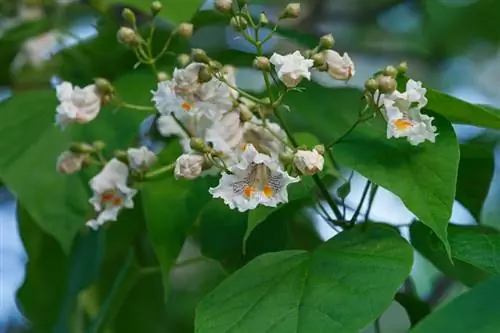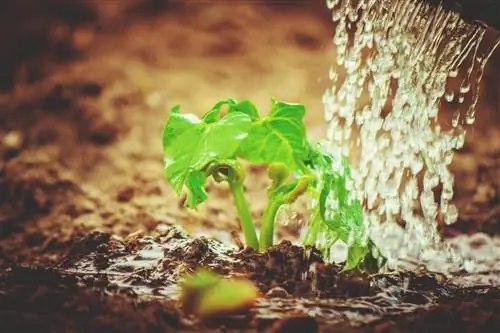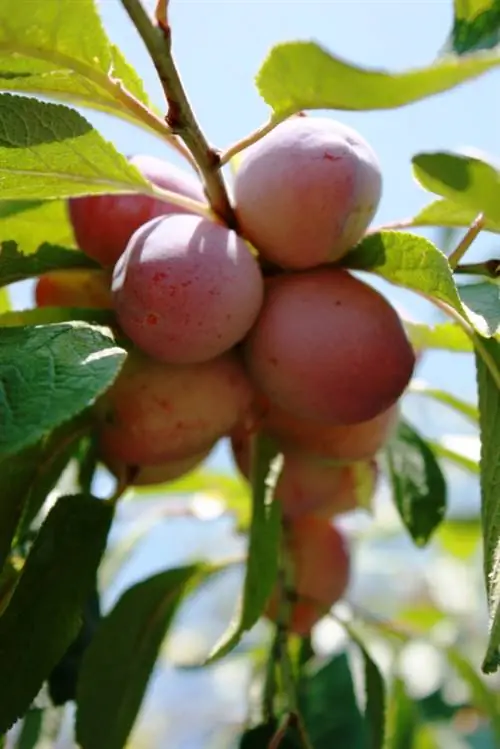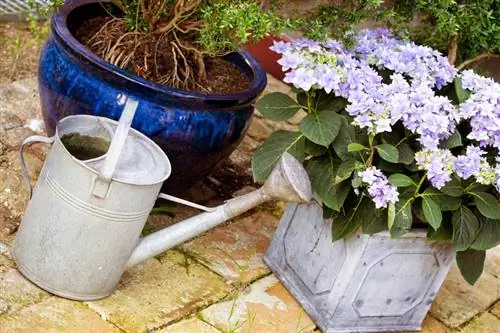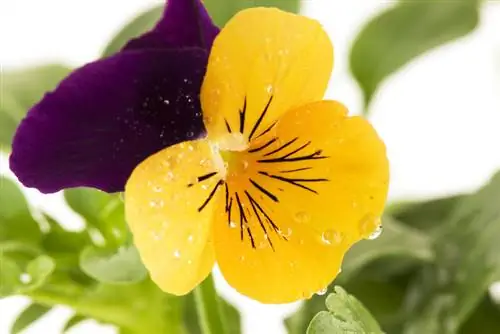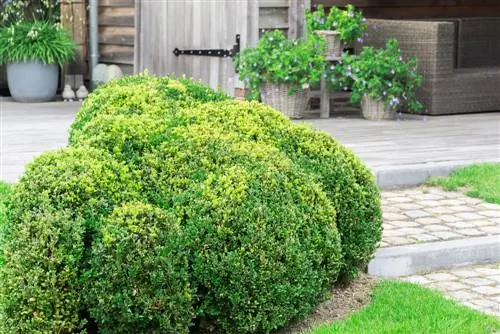- Author admin leonars@hobbygardeners.com.
- Public 2023-12-16 16:46.
- Last modified 2025-01-23 11:20.
The trumpet tree (Catalpa bignonioides - not to be confused with the angel's trumpet!) is considered quite easy to care for. In fact, this wonderfully beautiful exotic animal grows to an impressive size quite quickly, as long as it feels comfortable in its location and you adhere to the most important care rules. What is particularly important is a protected, warm location and soil rich in humus and nutrients. Although Catalpa is considered to be very consuming, you should not be too wasteful, especially with artificial fertilizers.
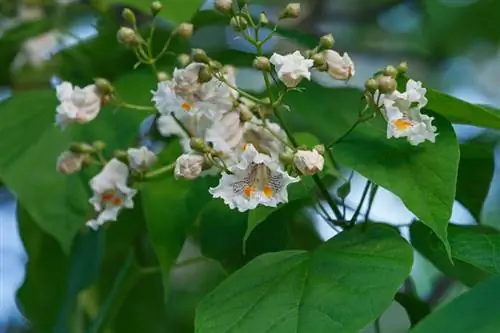
How should you fertilize a trumpet tree?
To optimally fertilize a trumpet tree, use organic fertilizers such as mature compost, horn shavings or mineral-rich garden fertilizer. Avoid fertilization that emphasizes nitrogen as it stimulates shoot growth but affects flowering.
Suitable fertilizers for trumpet tree
The trumpet tree benefits particularly from organic fertilizers, especially mature compost - which you can apply especially in early spring and autumn - horn shavings (€32.00 on Amazon) and a well-balanced, mineral-rich garden fertilizer. However, before you supply your trumpet tree with such products, a soil analysis is often useful. This costs a little, but you get concrete information about which nutrients are missing and how you should best fertilize.
Why fertilization with too much nitrogen emphasis is counterproductive
This is particularly helpful with regard to fertilization that is too high in nitrogen, because although this stimulates growth and leaf shoots tremendously, it also has many disadvantages. Too much nitrogen also means that the trumpet tree prefers to put its energy into shoot growth and therefore fails to bloom. In addition, the fast-growing shoots often do not reach maturity in time for winter, so that they end up in danger of freezing to death in the event of frost. Cheap fertilizers in particular contain too much nitrogen, so it's worth taking a closer look at the label (and therefore the contents).
Fertilize especially young trees and container specimens
Older trumpet trees that have been planted in the garden are usually able to provide themselves with sufficient nutrients. Here it should be enough to provide the tree with a little compost in spring. Younger and not yet well-established specimens, on the other hand, should be fertilized regularly - they have not yet been able to develop sufficient root material for self-sufficiency, especially if they have just been planted, and are therefore still dependent on external supply. The same applies to container specimens, which also cannot supply themselves with water and nutrients.
Tip
To help young trumpet trees get off to a good start, you can enrich the soil with organic fertilizers when planting. For this purpose, mix the excavated material with compost and/or horn shavings.

